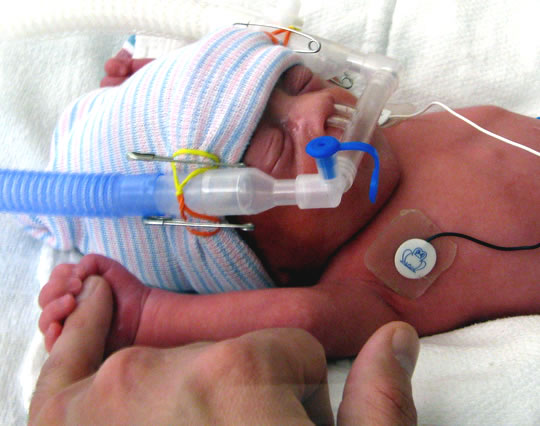The psychological benefits to premature babies of receiving loving touch can be measured 10 years later.
Like many mammals, human babies need maternal contact from birth to help both their physical and mental development.
Usually, though, when infants are born prematurely, they are mostly kept in an incubator, away from this vital human contact.
A new study, published in Biological Psychiatry, has followed 73 premature infants who were given a ‘kangaroo care’ intervention (Feldman et al., 2014).
This simply involves the mother holding her baby close to her skin for one hour a day over two weeks. As long as the infant is medically stable, this is perfectly safe.
Better cognitive development
The infants receiving kangaroo care were compared with 73 matched infants who followed the usual procedure of being mostly kept in incubators.
The results of the study showed that the benefits for both mothers and children from such a simple intervention were remarkable:
- Mothers showed more sensitivity and more maternal behaviour towards their children.
- Mothers had reduced anxiety.
- Children had stronger cognitive and executive skills.
- Children slept better.
- Children had a lower stress response.
The effects on the child were still evident ten years later.
Profound implications
This is the first ever study to show the long-term benefits of skin-to-skin contact for infants born prematurely.
John Krystal, Biological Psychiatry’s editor said:
“This study reminds us once again of the profound long-term consequences of maternal contact. The enhanced level of stimulation provided by this contact seems to positively influence the development of the brain and to deepen the relationship between mother and child.”
The study’s first author, Ruth Feldman, added:
“Kangaroo Care is an easy-to-apply intervention with minimal cost and its multi-dimensional long-term impact on child development calls to integrate this intervention in the care-practices of premature infants across the world.”
Kangaroo care was developed in Bogota, Colombia were the shortage of incubators forced doctors to improvise.
It seems that sometimes it takes a deprived environment to remind us of a fundamental truth: a baby needs its mother, a premature baby even more so.
Image credit: Jim Lynch.

